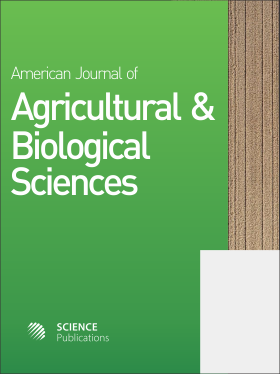Willingness to Pay for Wood Work Enterprises to Recover Deforested Softwood Trees in Eastern Ethiopia
- 1 Department of Agricultural Economics, School of Agricultural Economics and Agribusiness, College of Agriculture and Environmental Sciences, Haramaya University, Dire Dawa, Ethiopia
- 2 Debre Zeit Agricultural Research Center, Ethiopian Institute of Agricultural Research, Bishoftu, Ethiopia
Abstract
This study was carried out to find out the economic value of forests by woodwork enterprises for the reforestation of Softwood Pine trees in Eastern Ethiopia, namely Dire Dawa administrative council, Harari regional state, and Deder district of East Hararghe Zone. Forests in Eastern Ethiopia were the major sources of softwood pine logs. Nowadays, some commercially important pine species are over-exploited and in short supply. The study was undertaken to estimate Woodwork enterprises heads willingness to pay in Dire Dawa, Harari, and Deder districts for the recovery of deforested softwood pine trees in cubic meters (m3) using a contingent valuation method in Double Bounded Dichotomous Choice (DBDC) format. A seemingly Unrelated Bivariate Probit (SUBVP) model was used to examine aspects that affect woodwork enterprise heads willingness to pay (WTP) and to calculate the mean and aggregate WTP. To elicit their WTP for reforestation, 136 sample woodwork enterprise heads were randomly selected from 1076 enterprise heads and interviewed. Among these sample enterprise heads 87.5% of them were willing to pay for the reforestation while 12.5% were not. The mean WTP of the enterprise heads ranged from Birr 97.92 to Birr 174 per month per person or Birr 1,175.05 to Birr 2,088 per m3 per year per person and the aggregate WTP was Birr 1,264,343.04 per m3 per year and that could enable to reforest 88 hectares. The result also indicated that second bid value, family size, capital, perception, source connection, profit, substitution, liability, and distance were significantly related to WTP for reforestation. All these suggest softwood pine trees forest is of high value and therefore, there is an opportunity to mobilize woodwork enterprises to combat the softwood trees deforestation problem in the selected study areas.
DOI: https://doi.org/10.3844/ajabssp.2023.1.12

- 2,233 Views
- 1,895 Downloads
- 0 Citations
Download
Keywords
- WTP
- Deforestation
- DBDC
- CV
- SUBVP
- Softwood Pine Trees
- Woodwork
